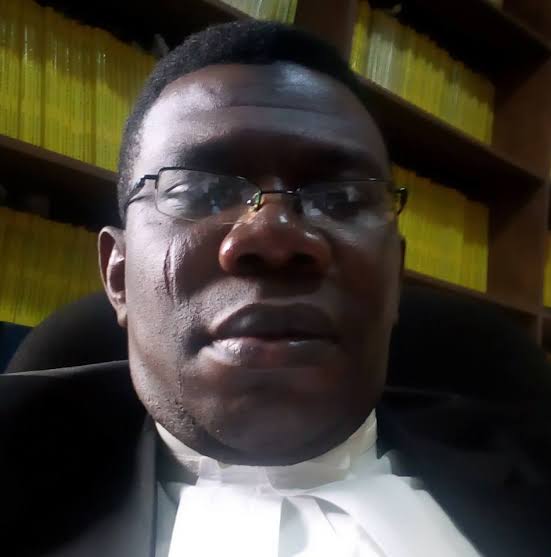News
S’Court judgement on Bayelsa Election: Political parties will now be careful – Ariyo


By Francis Sadhere
A legal practitioner and public commentator, Chief (Barr.) Robinson Ariyo has said the the recuent Supreme Court ruling that sacked the Bayelsa Governor-elect and his deputy will make political parties to be careful about who they select to represent them in elections.
Ariyo who is also a chief from Warri kingdom said the judgement though highly technical, was correct in all intent and purpose.
Ariyo who spoke to National Reformer in an interview in his office in Warri said, “But of course you can justify the judgement because in the first place each political party is required to make a valid nomination for Governorship candidate.
“Let us understand it from there. Once a party does not make a valid nomination for Governorship, it means that that party is not valid in that election.”
He explained that as a Governorship candidate, David Lyon failed to nominate a valid deputy Governorship candidate according to section 189 of the Nigerian Constitution.
“Now when you leave that party and come to the governor, every governor according to the Constitution in section 187 is expected to make a valid nomination of a deputy, which is a precondition of the validity of his own nomination.
“In other words that particular part of the Constitution says that once a governorship candidate does not have a deputy he is not validly nominated. And let us understand that there is an adjective that qualifies the word ‘vote’ to make it count, and that adjective is ‘valid,'” Ariyo said.
Continuing, Ariyo said, “Simple logic will tell you that you cannot call a vote valid if the process through which the vote emerged is in itself invalid. In other words the party does not make a valid nomination by the judgement which is the pre-election issues.
“But it has come out that this person is not validly elected. We all know that there are certain criteria which a person who wants to contest as a governor or deputy governor must meet.”
However, Ariyo believed that the ruling was too technical because it has disenfranchised those voters who voted for APC during the election, adding that it has also negated the principle of democracy.
He said, “However, over the years in law, we have seen a situation like this where the court can do something creatively that will be neither here nor there because if the Supreme Court had said before now that it’s the party that earns votes and as at the time the election was conducted people decided to vote for a particular party. The question therefore will be what do you do with these votes.
“Now you can see that because of the preponderance of opinion, you will see that the majority of voters appeared, either by hook or crook to have voted for a particular party and you disenfranchising that party will negate the very principles of democracy that says that democracy is the government of the people, by the people and for the people. In other words it is a government that is people participatory and people centered.
“To me it was too hard line technical law. But of course law can be hard line and technical. Yet it is the same Supreme Court that will tell you that the era of technicality in law is over. Now it makes the job of the lawyer more difficult.”
The legal luminary added that the Supreme Court judgement could “create uncertainty making people of good will to be afraid to contest elections in the country.
He likened the ruling to the case of the premier league where the spectators were forced to wait for the Video Assistance Referee (VAR) before they jubilate when a goal is scored.
“Now you have the kind of situation we have in premier league where the VIdeo Assistance Referee (VAR) has killed the excitement of the game. That joy will no longer be there because here is a man who has been doing rehearsal as he was about to be sworn.
“So Justice sometime should be delivered with some level of caution. But all in all I am not saying that this was not a good judgment by the hard common law. It is a sound judgement by all intent and purpose.
“But I feel that justice should be tendered with mercy but this one was not tendered with mercy.
“Going forward, I think that our justices need to go back again and read the relationship between the common law and the equity law and know the reason why the equity lawyer, the equity jurists are tending to move away from the common law to equity. Because even though equity must follow the law, equity tenders justices more cautiously than the hard line common law.
“There is a coinage in Latin that says let Justice be done even if the heaven will fall. That is the cardinal principal of law. In other words it is not the voices of the people in the field that matters but whether thep rinciples were adhered to.”

